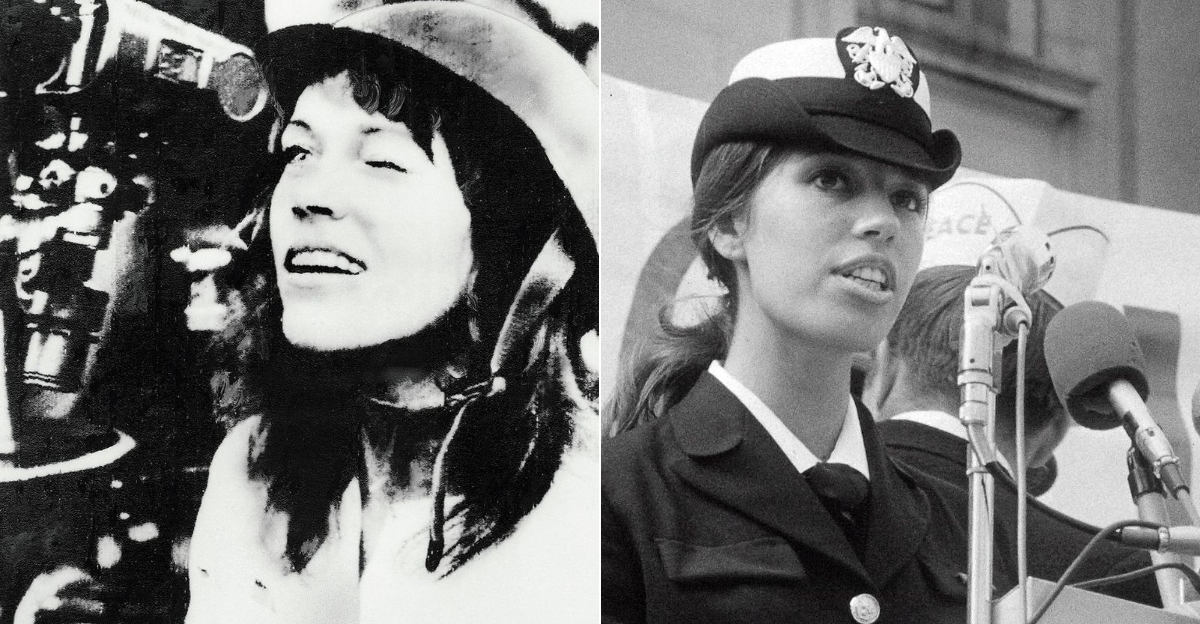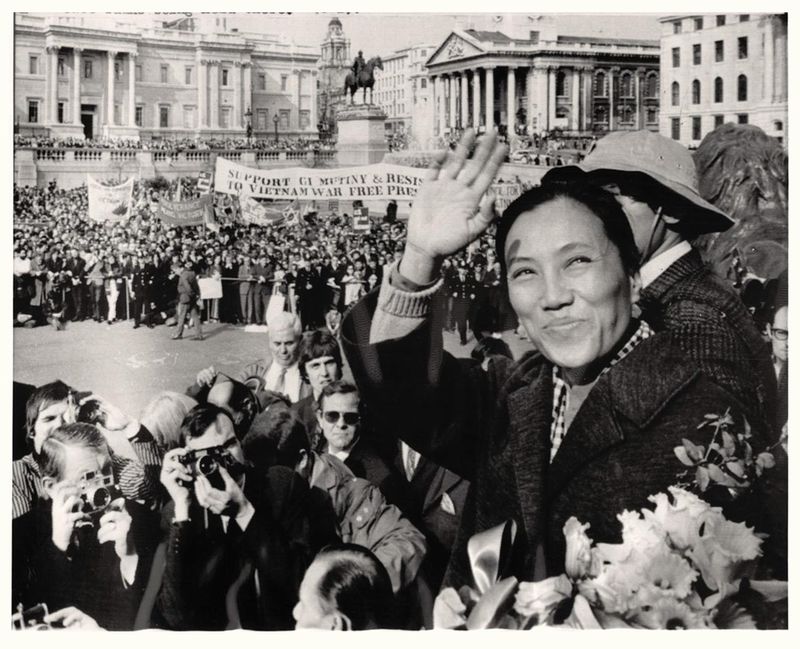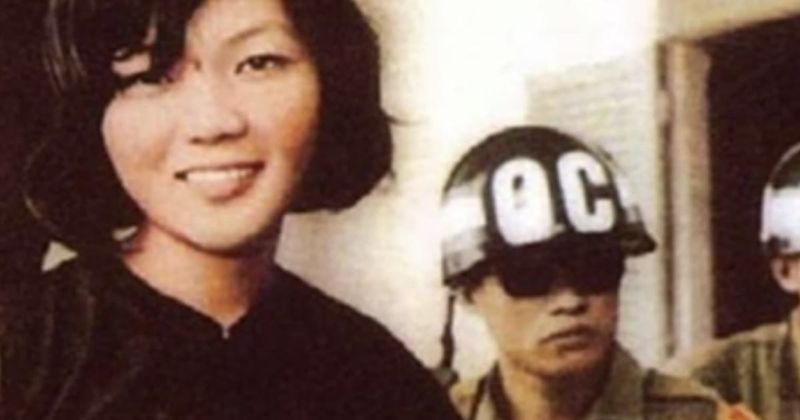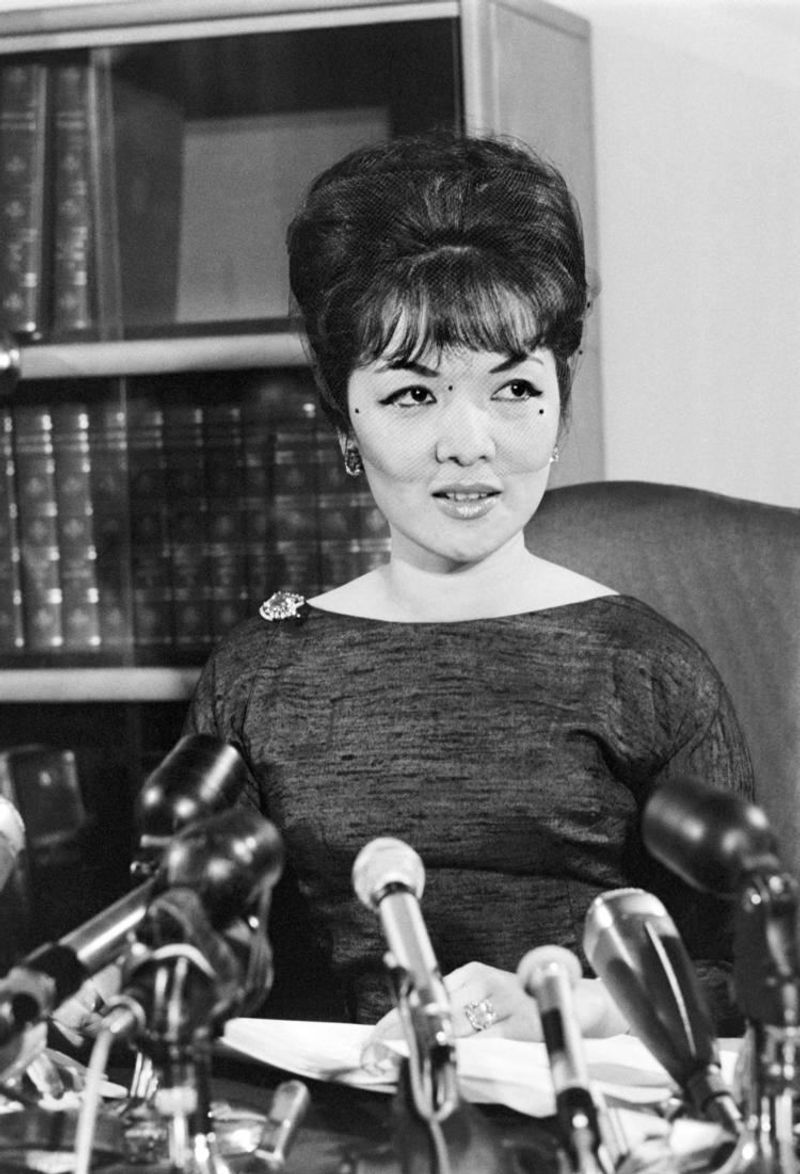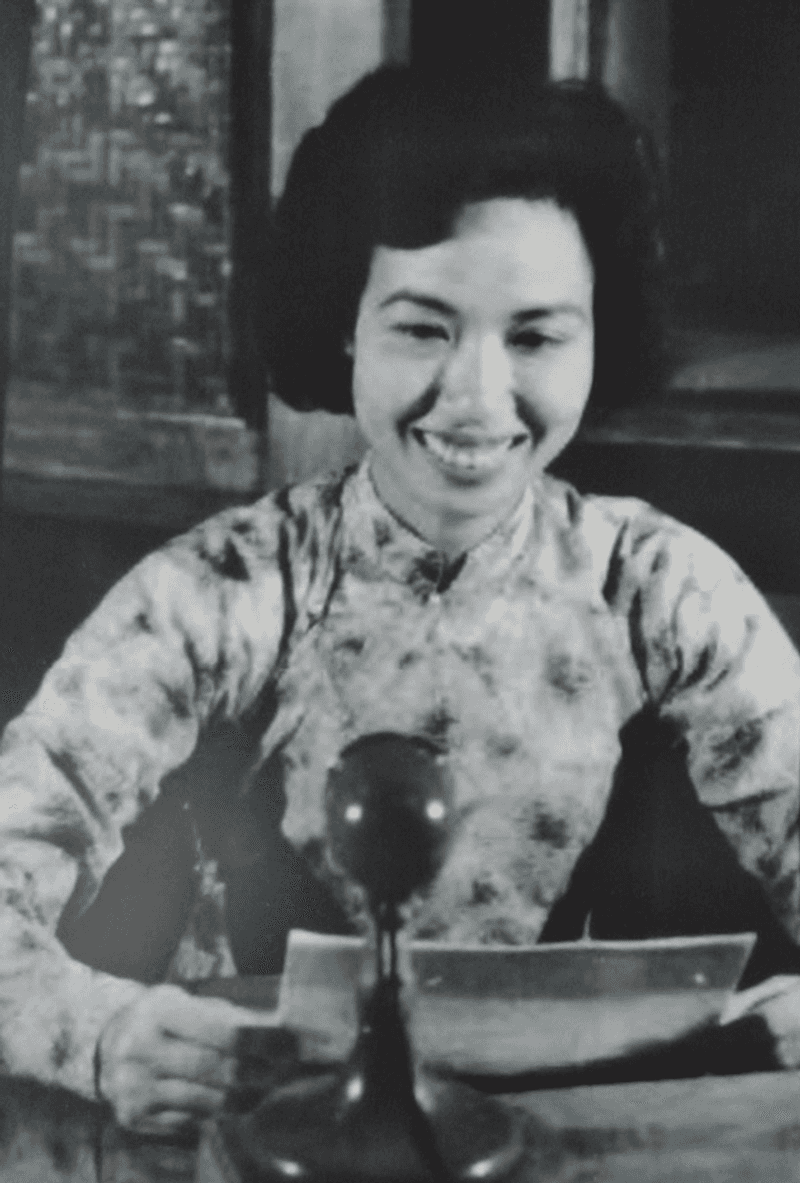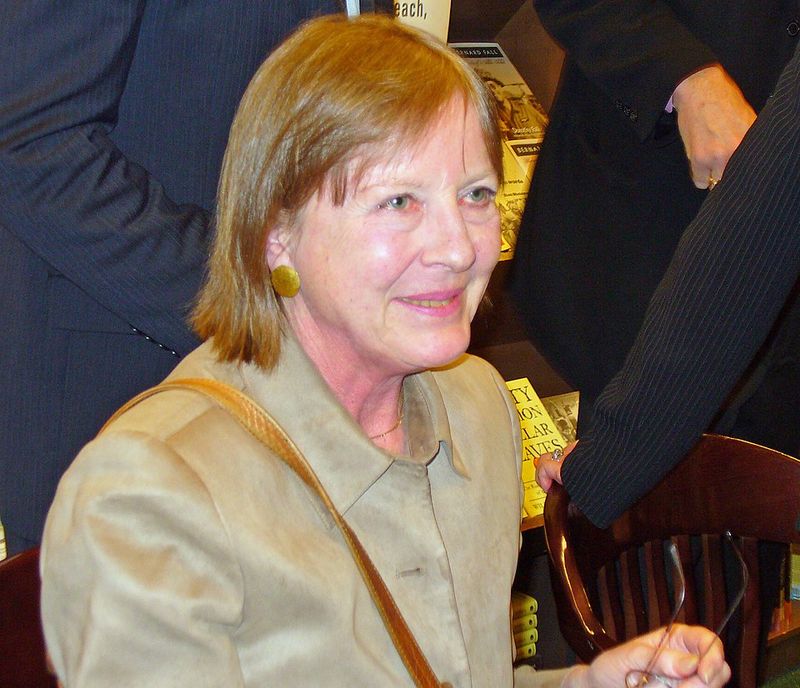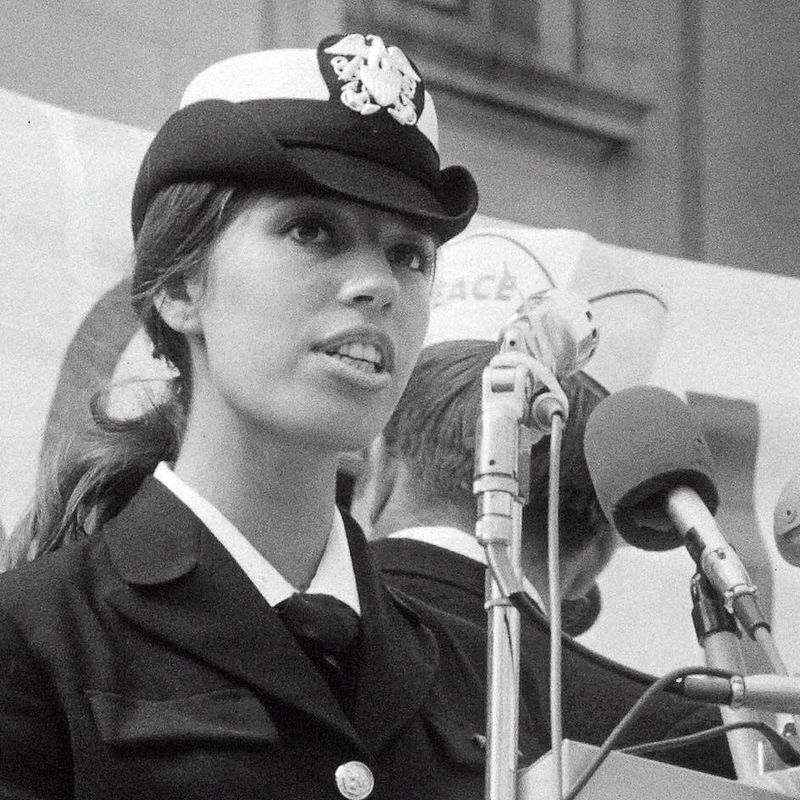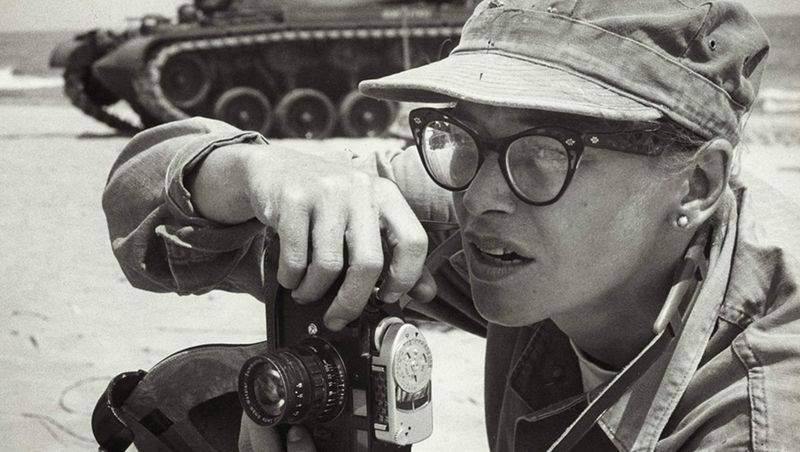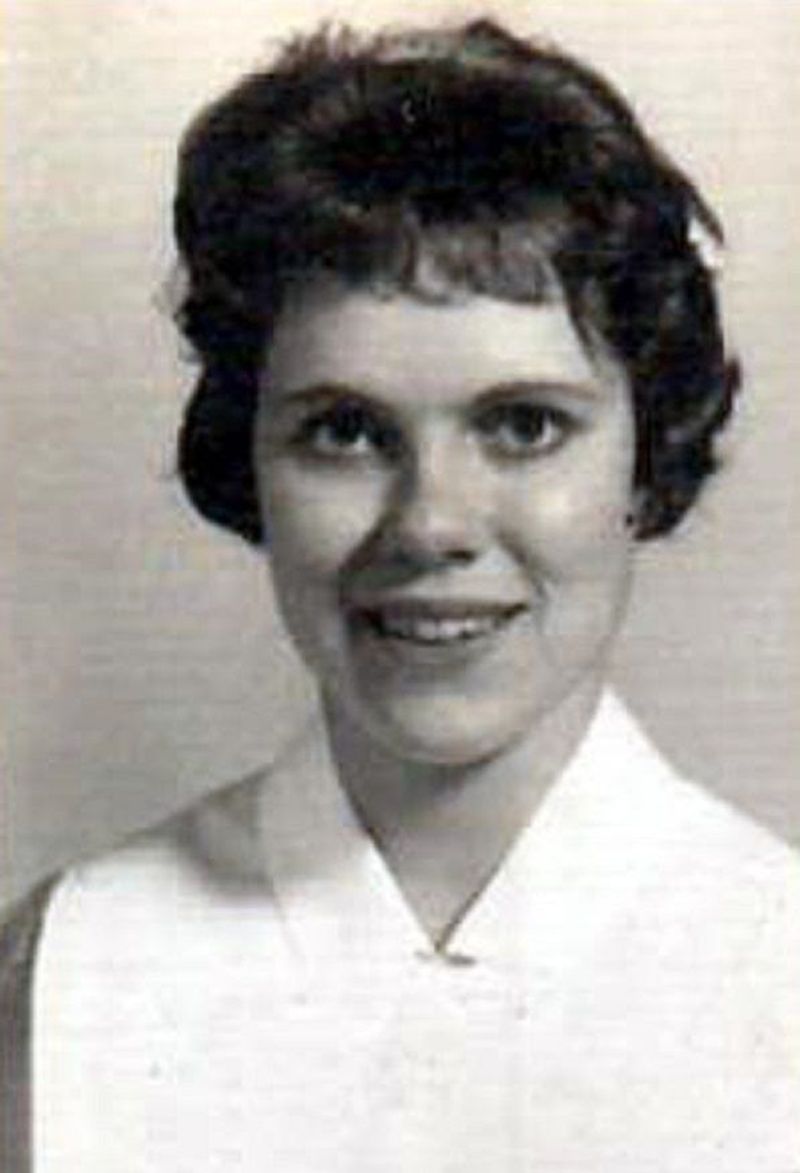The Vietnam War was a complex conflict that involved numerous figures who played pivotal roles. Among these, many women emerged as key influencers and participants, contributing significantly to the war’s narrative. This blog post highlights ten remarkable women, each with a unique story and impact on the Vietnam War. Their courage, resilience, and contributions are remembered and celebrated.
1. Nguyễn Thị Bình – Viet Cong diplomat and chief representative at the 1973 Paris Peace Accords; later Vietnam’s first female cabinet minister
Nguyễn Thị Bình’s diplomacy was pivotal at the Paris Peace Accords in 1973. A figure of resilience, she represented the Viet Cong, articulating their demands with clarity. Her presence symbolized a shift in diplomatic engagement.
Post-accords, Bình became Vietnam’s first female cabinet minister, breaking barriers in a male-dominated political landscape. Her leadership was influential in shaping Vietnam’s post-war policies. A champion for peace and equality, Bình’s political journey is admired globally. Her legacy endures as a symbol of strength and diplomacy in conflict resolution.
2. Võ Thị Thắng – Communist revolutionary famed for the iconic “Smile of Victory” photo after her 1968 arrest in Saigon
Captured in a moment of adversity, Võ Thị Thắng’s smile became a symbol of resistance. Arrested in 1968, her photograph was widely circulated, embodying courage against oppression.
Despite imprisonment, Thắng’s spirit never wavered. Her defiance inspired many, becoming a rallying cry for freedom. This iconic image transcended borders, illustrating the human side of conflict. Thắng’s legacy as a revolutionary is marked by her unwavering bravery and hope, reminding us of the enduring spirit of those who fight for justice.
3. Trần Lệ Xuân (Madame Nhu) – De facto First Lady of South Vietnam (1955–63) who led the Women’s Solidarity Movement and influenced “morality” laws
Known as the “Dragon Lady,” Trần Lệ Xuân wielded significant influence as South Vietnam’s de facto First Lady. Her leadership in the Women’s Solidarity Movement aimed to empower women within a conservative society.
Madame Nhu’s influence extended to controversial “morality” laws, reflecting her strong opinions on social norms. Her style and forthrightness left a lasting impression. Despite her polarizing politics, Xuân’s role in shaping South Vietnamese society is undeniable. Her life remains a captivating chapter in Vietnam’s history, illustrating the complexity of political power and gender dynamics.
4. Trịnh Thị Ngọ (“Hanoi Hannah”) – North Vietnamese English-language radio broadcaster whose propaganda aimed to demoralize U.S. soldiers
Trịnh Thị Ngọ, famously known as “Hanoi Hannah,” was a master of words. Her broadcasts aimed to undermine U.S. soldier morale with carefully crafted messages. Fluent in English, her voice reached far beyond Vietnam’s borders.
Ngọ’s broadcasts were strategic, intertwining news with propaganda. Her ability to connect with soldiers on a human level was unsettling to some. Despite the war’s end, her voice remains iconic, representing the power of media in warfare. Hanoi Hannah’s role in the Vietnam War highlights the psychological dimension of conflict.
5. Frances FitzGerald – Pulitzer Prize–winning journalist whose 1972 book Fire in the Lake offered groundbreaking insight into Vietnamese society and the war
Frances FitzGerald’s work provided a fresh perspective on the Vietnam War. Her Pulitzer Prize-winning book, “Fire in the Lake,” delved into Vietnamese culture and the war’s impact.
FitzGerald’s writing was insightful, capturing the complexities of Vietnamese society with empathy and depth. Her ability to convey the nuances of the conflict earned her acclaim. Her book remains a significant historical account, offering readers a deeper understanding of Vietnam. FitzGerald’s contribution to journalism is celebrated for its clarity and compassion, bridging cultural divides through narrative.
6. Jane Fonda – Actress and antiwar activist whose controversial 1972 visit to North Vietnam and radio broadcasts galvanized and divided American opinion
Jane Fonda’s 1972 visit to North Vietnam sparked intense debate. Known for her activism, she used her platform to voice antiwar sentiments. Her broadcasts were provocative, challenging U.S. policies openly.
Fonda’s actions were polarizing, earning both admiration and criticism. Her willingness to speak out highlighted the power of celebrity in political discourse. Despite controversy, her commitment to peace advocacy is undeniable. Fonda’s legacy in the Vietnam War is complex, illustrating the intersection of fame and activism in shaping public opinion.
7. Susan Schnall – U.S. Navy nurse who dropped antiwar leaflets over Bay Area bases in 1970, was court-martialed, and became a leading peace movement figure
Susan Schnall took a bold stand against the Vietnam War. As a Navy nurse, she dropped antiwar leaflets from a plane, making a dramatic statement.
Court-martialed for her actions, Schnall’s resilience became a symbol of protest within the military. Her commitment to peace influenced others, fostering dialogue about the war’s morality. Schnall’s courage exemplifies the power of individual action in the face of institutional opposition. Her story is a testament to the impact of personal conviction in advocating for change.
8. Georgette “Dickey” Chapelle – Pioneering combat photojournalist, the first female correspondent killed in Vietnam when she struck a landmine in 1965
Georgette “Dickey” Chapelle broke barriers as a combat photojournalist. Her lens captured the harsh realities of war, documenting stories often overlooked.
Chapelle’s courage in the field was unmatched, bringing raw images to the world’s attention. Tragically, she became the first female correspondent killed in Vietnam, a testament to the risks she faced. Her work remains influential, shedding light on the human cost of conflict. Chapelle’s legacy endures, inspiring future generations of journalists to pursue truth despite danger.
9. Elizabeth Ann Jones – Army nurse and one of the first American servicewomen killed in Vietnam, lost her life in a helicopter crash in 1966
Elizabeth Ann Jones served with compassion as an Army nurse in Vietnam. Her dedication to caring for wounded soldiers was unwavering.
Tragically, Jones’s life was cut short in a helicopter crash in 1966, making her one of the first American servicewomen to die in the conflict. Her sacrifice highlights the contributions and risks faced by military nurses. Jones’s memory is honored as a symbol of service and bravery, reminding us of the human cost of war.
10. Sharon Ann Lane – Army nurse and the only U.S. servicewoman killed by enemy action when a rocket hit her ward in 1969
Sharon Ann Lane’s commitment to her patients defined her service in Vietnam. As an Army nurse, she provided care amidst challenging conditions.
Lane’s life was tragically ended when a rocket hit her ward in 1969, marking her as the only U.S. servicewoman killed by enemy action in the war. Her dedication and bravery are honored, highlighting the vital role of medical personnel in conflict zones. Lane’s story is a poignant reminder of the sacrifices made by those who serve.
